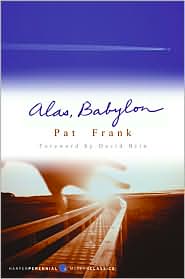 Abraham Lincoln has always remained as one of the most well-known American presidents. Just about everyone knows his general accomplishments, in ending slavery, in the American Civil War. Now, the whole story is told.
Abraham Lincoln has always remained as one of the most well-known American presidents. Just about everyone knows his general accomplishments, in ending slavery, in the American Civil War. Now, the whole story is told.The entirety of Honest Abe's life is known to be tragic, starting with the death of his mother. But what no one realizes is that most of these deaths were brought on by vampires. To avenge his dear mother, Abraham begins his quest in destroying as many vampires as he can, from boyhood to President. For, the Civil War was not only a war of outlawing slavery, but also a war to rid America of its vampires.
I discovered the existence of this Abraham Lincoln: Vampire Hunter last summer, when I saw an off-duty lifeguard reading it, a faint smile upon her face. Just look at the cover. It's pretty clear why people would be attracted to this novel. This has to be one of the most unique ideas EVER. However my interest was especially high since Abraham Lincoln happens to be my favorite American president and I adore vampire novels.
This book, from first page to last, is completely interesting and increasingly awesome. Many true facts are expressed throughout the novel, although Seth Grahame-Smith added plenty of fiction. Since he did his homework and kept fact consistent, a lot of these fictional possibilities made plenty of sense! And other people found in history were involved, like Edgar Allen Poe. This made me excited, being a huge Poe fan. I was especially amused by his appearance. He was just so... Goth. Completely creepy, as one would expect, but for whatever reason I remained shocked.
And yes, some of the historical figures used in this novel were turned into vampiers by Grahame-Smith! What fun!
In addition to Lincoln himself and Edgar Allen Poe, another character stood out to me ever since his first appearance: Henry. His past made me feel sorry for him, and his wisdom made me admire him. Well, if you could say he had wisdom, and I say so. He proved himself right time and time again to President Lincoln, even if sometimes Lincoln was bothered by him in some way. It's like I almost had a distant crush on him or something, if you really want the truth.
Although a work of fiction, the type of writing is a lot like what you'd expect from a biography, with little captions and old photos (photoshopped, in this case, but still a nice effect) and jounral entries and such. Of course, a lot more action is to be expected, though the general gist makes it feel all too real.
I learned many things from this book about President Lincoln (the factual parts of the story are pretty easy to configure). Honestly, I had no idea how touched he had been by tragedies in his life. With heartbreaking descriptions of how broken Abraham Lincoln became at times, I felt like I wanted to tear up with him, and tell him something of comfort. I mourned, for despite the novel could be humorous at times, it grew increasingly serious. I admired him for his constant, defined love for his children. I've never read about anyone who loved their children so purely and had such devotion for being a good father.
So, since the story kept building and building, the best part for me was the ending. The ending of this novel is just too amazing, and it's why I rate this book so highly. It may be one of the best endings for any book I've read, because I can't believe I didn't see it coming, yet it was a huge surprise.
Abraham Lincoln: Vampire Hunter turned out to be a totally entertaining read, that got better and better as I turned the pages. In it's own strange way, this novel is actually powerful.
4.5/5 Stars
Grahame-Smith, Seth. Abraham Lincoln: Vampire Hunter
New York, NY: Grand Centeral Publishing of Hatchette Book Group, Inc.
2010
